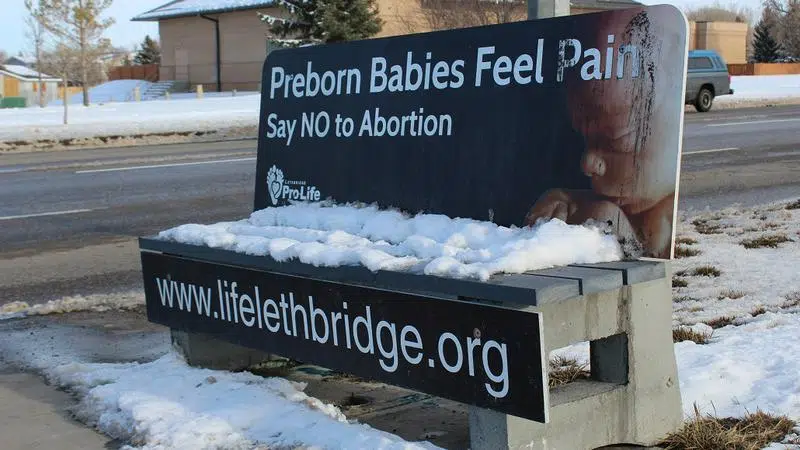
Lethbridge Pro-Life group squares off in court with the City over anti- abortion ads
LETHBRIDGE, AB – How freedom of speech as protected in the Charter of Rights and Freedoms can or should be balanced, with the rights of the City of Lethbridge to act in the public good is the subject of a judicial review that began on Thursday (Oct. 10) in Court of Queen’s Bench.
The issue relates to the City’s decision in April 2018 to pull five Lethbridge and District Pro-Life (LPL) ads from transit buses and benches, citing serious public concerns.
The ads, which at first read “unborn babies feel pain,” and later “pre-born babies feel pain, say no to abortion” were removed after more than 100 complaints via email and though social media were received. The ads depicted a picture of an unborn baby at a later stage of development, the group’s logo and a web address. At the time the messages were taken down, the city sent out a statement:
“We acknowledge that advertising on public spaces must meet community norms, and that sometimes there can be a range of values and views,” the statement read. “The best interests of our community are always paramount, and we will continue to exert discretion in the use of all public advertising spaces.”
